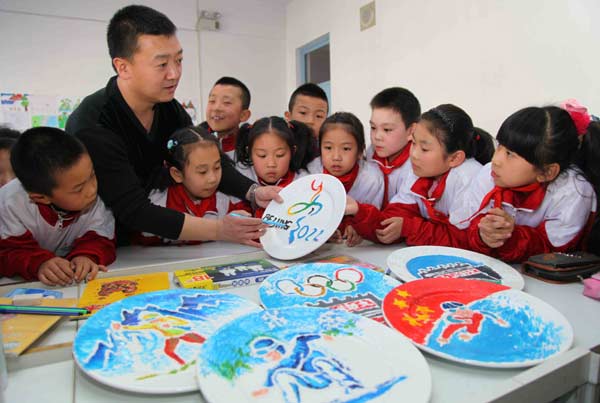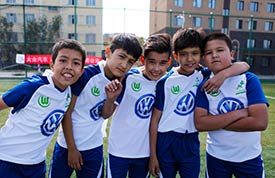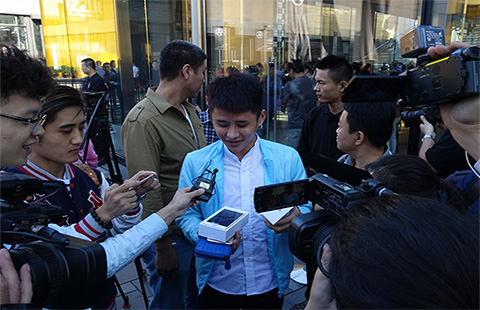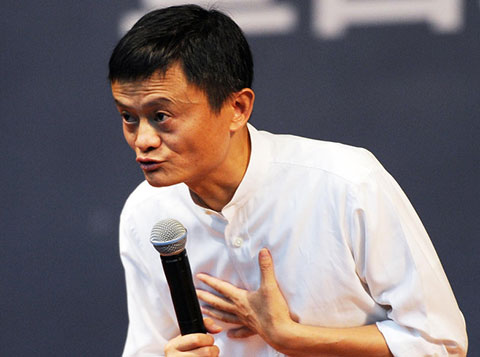Olympics are good news for nation's regional program
By Zhu Zhenxing (China Daily) Updated: 2015-09-28 09:38
|
 |
|
Primary school students learn how to draw Winter Olympics themes on plates in Zhangjiakou, Hebei province, March 4, 2015. [Photo/Xinhua] |
Efforts to integrate and coordinate the Beijing-Tianjin-Hebei region is one of the most important development strategies in China.
And it could not come at a better time, considering the area is to play host to the 2022 Winter Olympic Games.
The International Olympic Committee announced Beijing, and its co-host Zhangjiakou in Hebei province, as the winning bid on July 30. Without that victory, the regional integration plan could have had a different focus.
The Chinese stock market has been seeing the effects of the IOC decision since July.
Prices for shares in Xuanhua Construction Machinery Co, expected to be a leading player in the Winter Olympic Games and the regional integration plan, saw a continued rise in July. At the same time, share prices for some companies related to the Games have fallen in the recent stock market crash.
The capital market has its expectations, but people need to plan in reality.
Although some stocks have fallen, the promotion of the regional agglomeration is continuing, and will be greatly influenced by the Winter Olympic Games.
First, the 2022 Games will enhance the leadership system.
The idea of this regional integration was proposed as early as 2004, but it developed slowly as there was a failure to balance various interests among the three regions.
Last year, the State Council, or the cabinet, set up a team headed by Vice-Premier Zhang Gaoli to promote the regional integration. Another central government leading group may now be established thanks to Beijing's Olympic bid success.
Second, the Winter Games will promote transport connections between Beijing, Tianjin and Hebei. The event will attract many athletes and visitors to Beijing and Zhangjiakou, posing a challenge to the region's transport system, and a leading group has already been founded to focus on improving Beijing's international transport capacity and the intercity transport capacity between the capital and Zhangjiakou.
Third, the Games can help improve the ecological conditions in the region. International sporting events are windows into the host country. The Winter Games also require higher ecological environment conditions compared with the Summer Games.
The central government is paying much attention to environmental protection. A plan, which may consider taking in private capital and promoting regional cooperation on environment protection, may be published soon.
Fourth, the Winter Games will help promote industrial transformation and upgrading in the region. The services sector is considered to be the future of the national economy, and the sports industry is the future of those services. The Games can boost the development of the sports industry.
The sports industry accounts for about 0.6 percent of China's GDP, yet it is more than 2 percent in developed countries. So the sports sector has huge potentials.
While people prepare to welcome the 2022 Winter Games, the next seven years will be the most crucial for the joint development of the Beijing-Tianjin-Hebei area.
The author is a researcher with Minsheng Securities in Beijing. The views do not necessarily reflect those of China Daily.
- China, Georgia sign framework deal on currency swap
- China-Australia FTA compromise proposed to avoid parliament stalemate
- The cost ineffectiveness of new energy vehicles for urban buyers
- Holley Group's Chinatown in Thailand has green ambitions
- Seafood traditional traders send out mixed signals
- Authorities ramp up construction of infrastructure for electric vehicles
- Shoppers look to net bargains
- Olympics are good news for nation's regional program
















